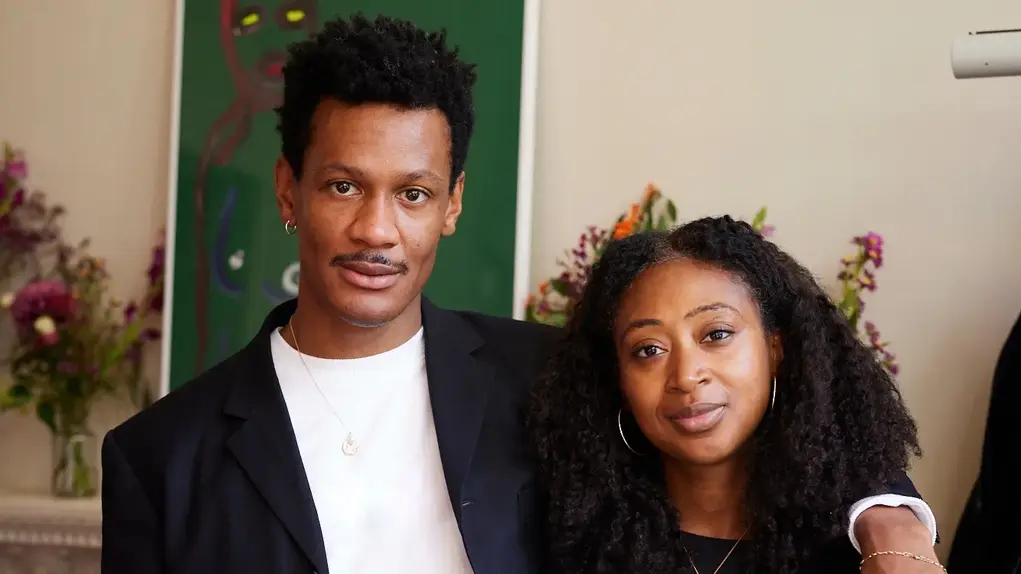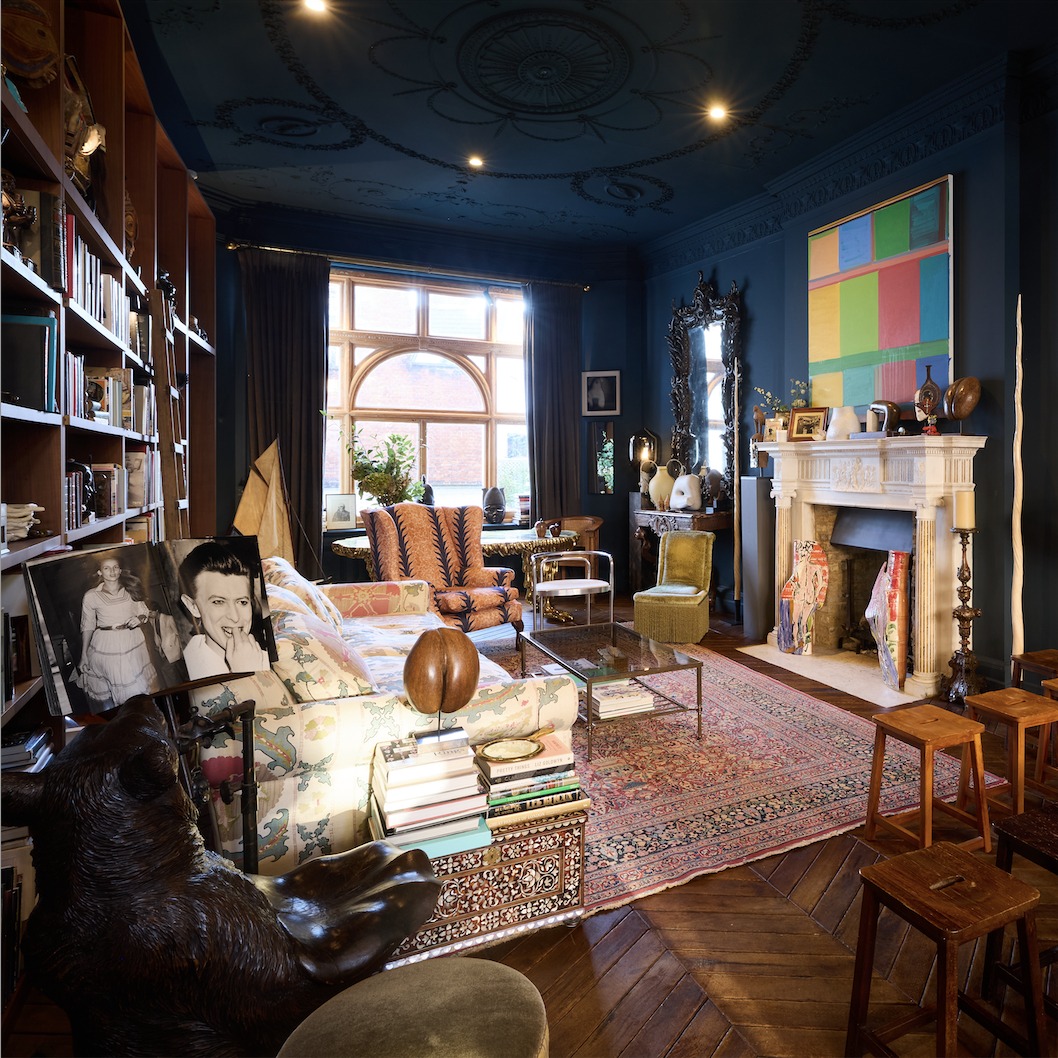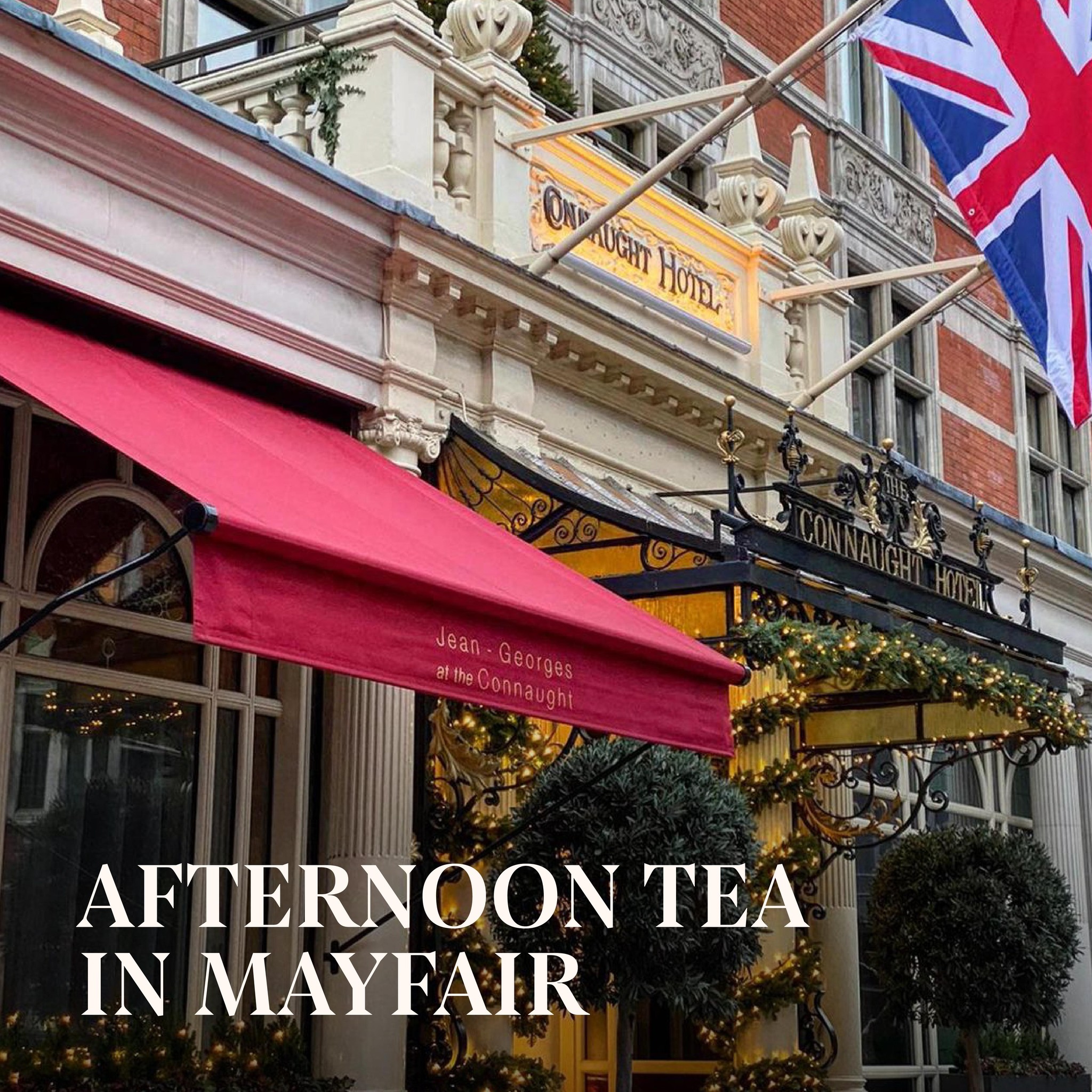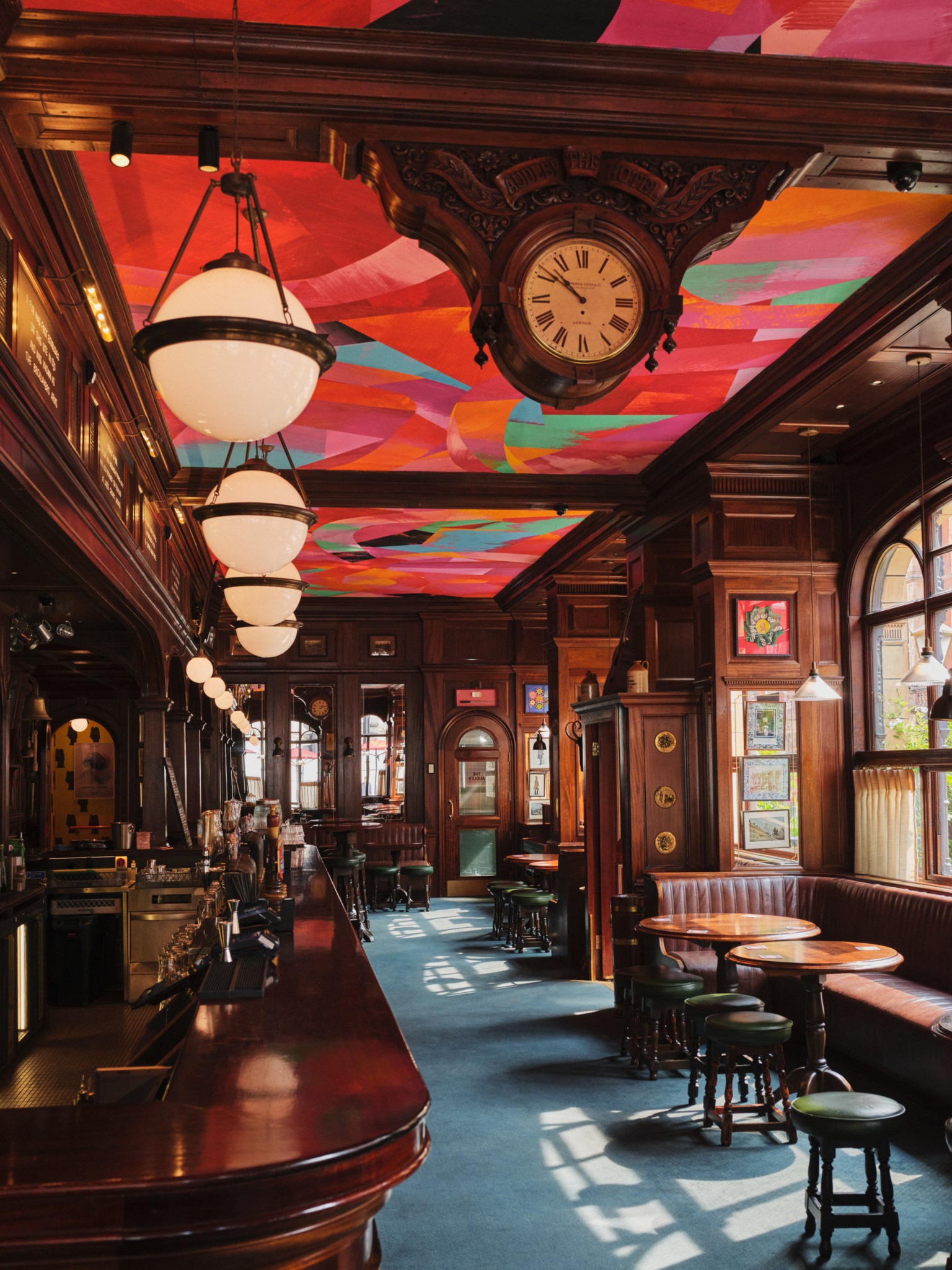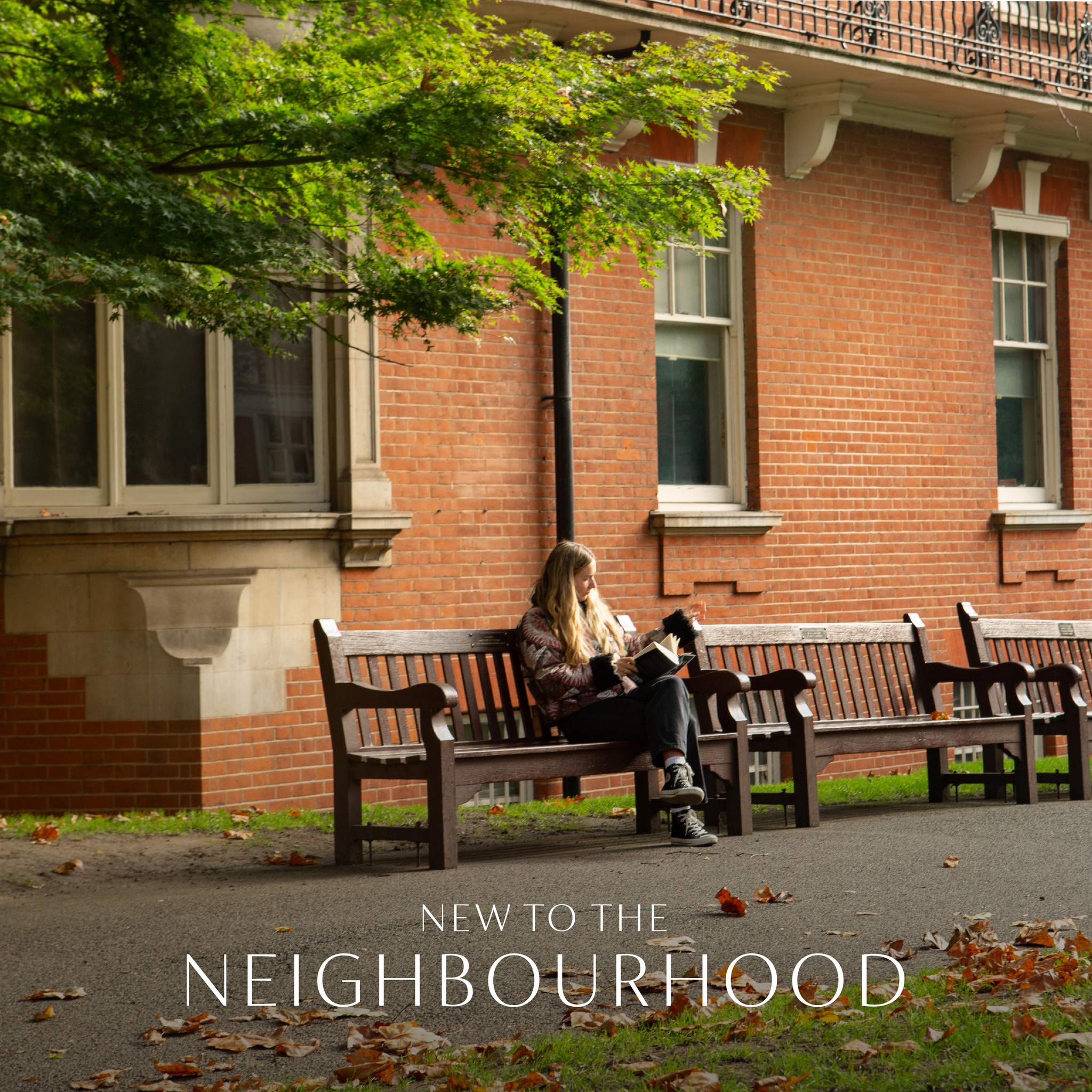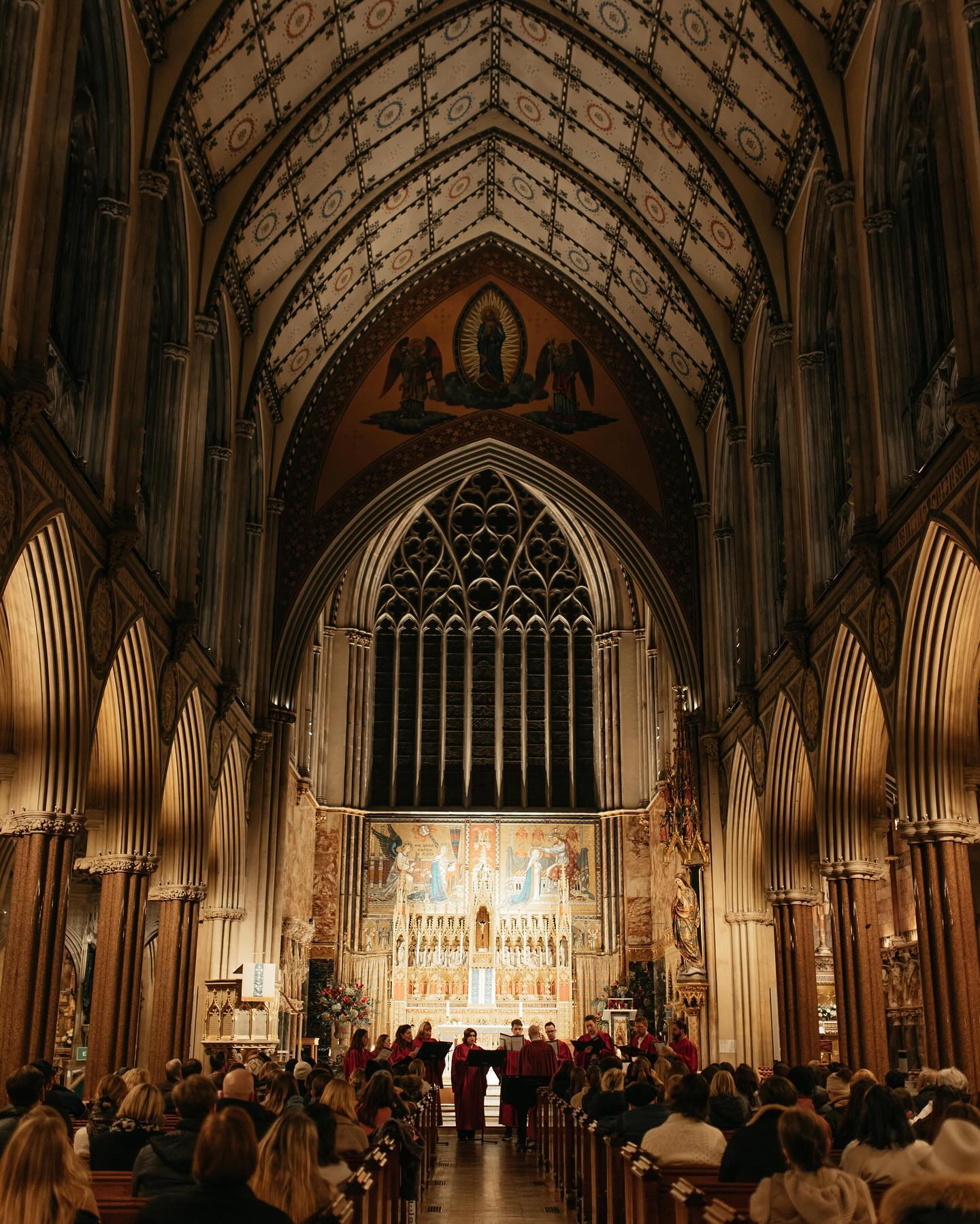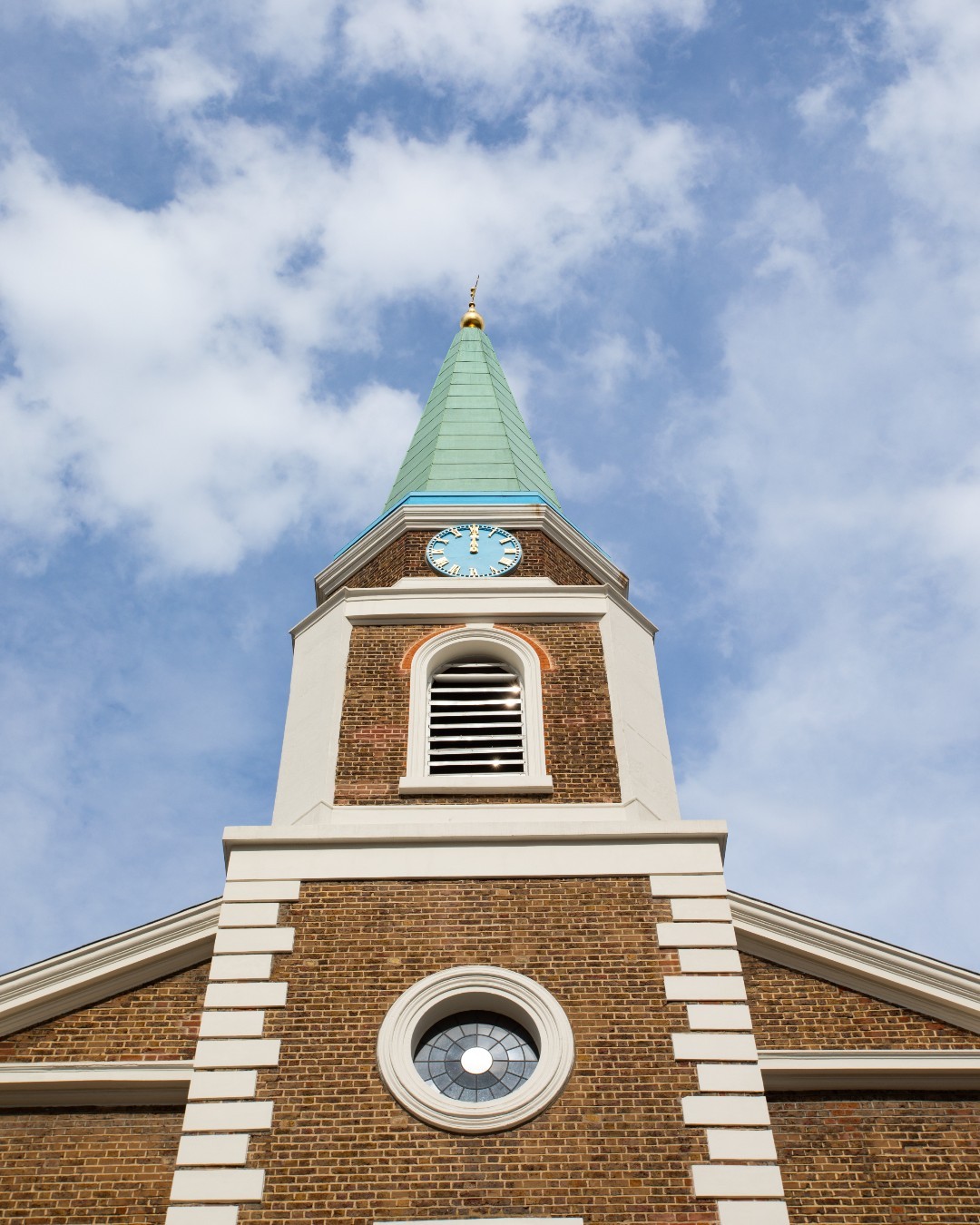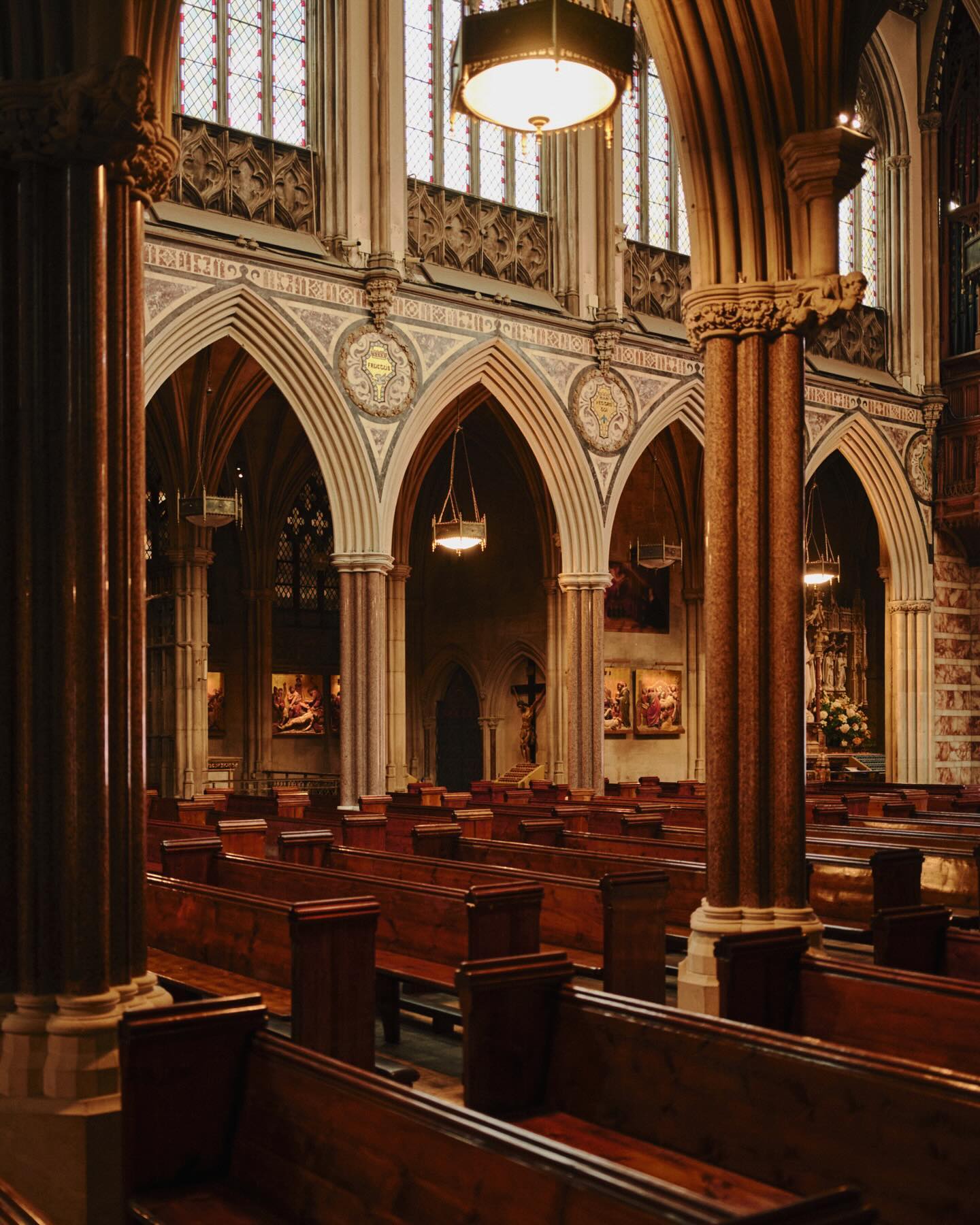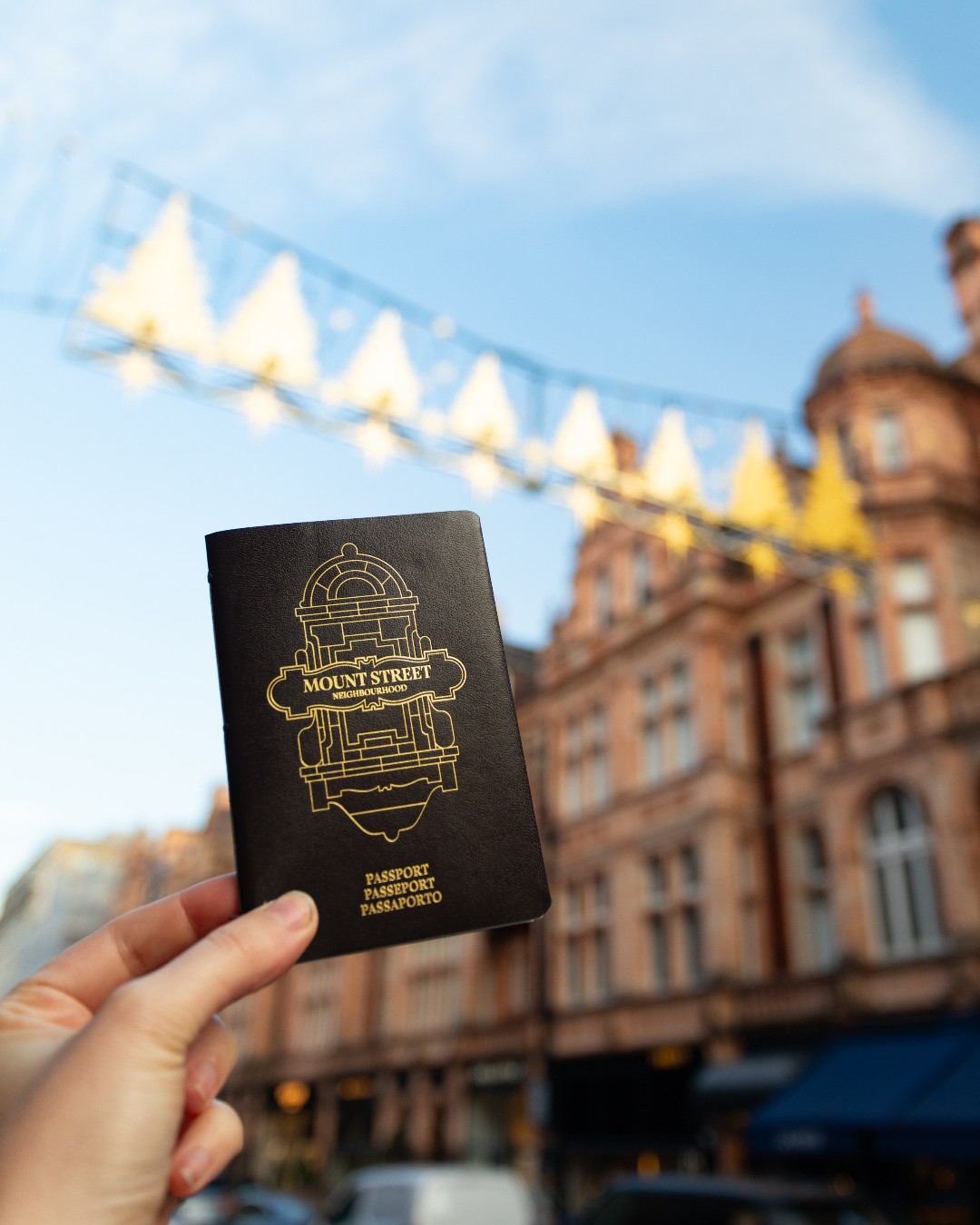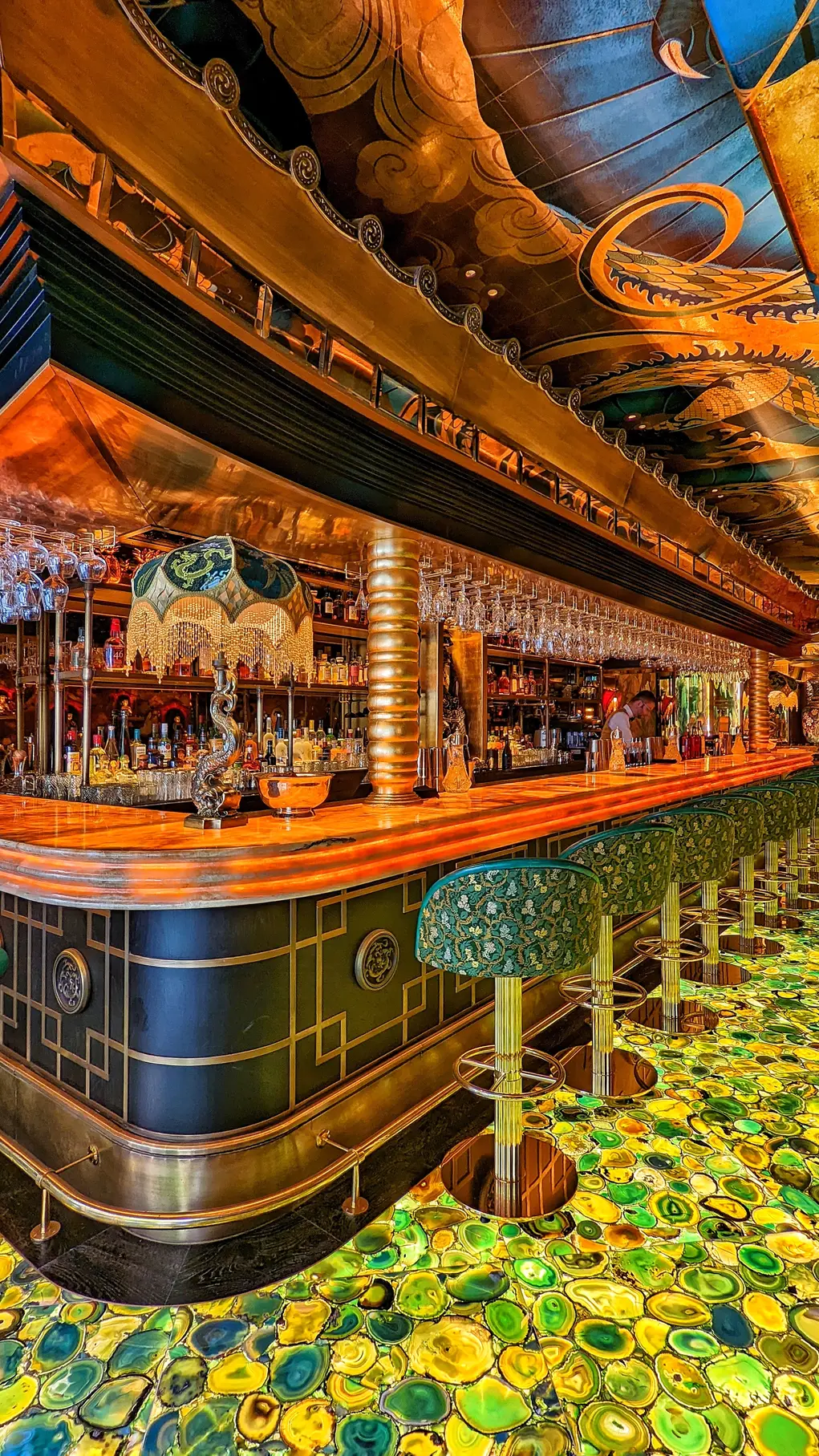10 Questions: A Vibe Called Tech
9 September 2024Charlene Prempeh and Lewis Dalton Gilbert are the intellectually infectious and super curious double act behind creative studio and arts consultancy A Vibe Called Tech, which launched in 2018. Since setting up their practice, they’ve collaborated and delivered projects for brands such as Aesop, Frieze, Faber and Gucci, alongside institutions including the Royal Academy Whitechapel Gallery, White Cube, and the Victoria & Albert East museum. During the inaugural Mount Street Neighbourhood Arts Festival this October, A Vibe Called Tech will host Did I Tell You?, a daily pop-up conversational series at various local venues.
The agency specialise in creating projects and cultural moments that carve out authentic storytelling. Their first project was relaunching Gucci’s Jackie bag as genderless in key regions, such as France, the UK, the US and Asia. “We proposed an idea of doing this in Ghana because a lot of Ghanaian dialects are genderless, so it felt authentic and also educational. It really set the tone for how we to work,” explains Dalton Gilbert. Their art consultancy follows a similar mindset. “We help brands to navigate how to enter the art world authentically, so they can build a community,” says Prempeh. “I think a big part of being in creative spaces is about connections, people trying to work out who they are, and people trying to help other people to work out who they are.”
Prempeh, who published her first book Now You See Me – An Introduction to 100 Years of Black Design in 2023, is a contributing editor to the Financial Times’ HTSI magazine, chair of the Frieze 91 committee, Trustee for CAS and sits on the board for Tate Enterprise. Dalton Gilbert is creative director of A Vibe Called Tech and also works as an independent curator – he has produced projects for the likes of Frieze and White Cube – while holding the post of associate curator for the New Art Centre.
1. How did you meet and what were your first impressions of one another?
Charlene: I first met Lewis at a Years & Years gig at Wembley. I immediately thought he was very chic. Then about a year later when I started working at Frieze where Lewis also worked, I approached him like an excited puppy. But I’ve never seen anyone less excited to see me! [laughs].
Lewis: But it wasn’t really about you [laughs]. I had quite a quiet persona when I worked at Frieze and so when Charlene arrived like a mad whirlwind… everyone was like ‘do you know her?’ . And then we quickly became fast friends. But yes, to begin with I thought she was a bit mad.
2. What are the goals of A Vibe Called Tech?
Charlene: I think from the very beginning, the idea was around, how do you unearth untold stories and bring cultural education to brand storytelling. Brands are such an integral part of our culture, so let’s celebrate that and make sure that the stories they’re telling are told in really beautiful and credible ways.
Lewis: I think it's all about authenticity. When we started a lot of brands were being called out for doing things incorrectly, so even when they were trying to be more diverse in their storytelling, they often weren’t doing it correctly. Or they were shoehorning people into what they already did, and it just felt completely incongruous, like it was always just an add-on. Whereas, I think what we really enjoy doing is looking for these lesser-told stories, but stories that make sense with a brand’s own identity and their original mission statement.
3. How would you describe London’s pull as a creative capital?
Charlene: London is just very full of characters isn’t it? When I talk about it being multicultural, I don't just mean in terms of what countries people are from and their ethnicity, I mean the broadness of our collective interests. I love that about London, that because we’re exposed to so much culture, we really engage with a lot of it.
Lewis: I think it’s sort of an established anti-establishment mentality. You can counter the establishment and be loud about it. You can air your dirty laundry, have grievances with things that are going on and because of that, it inspires lots of people to be themselves. I think art in the UK and London has always been very anti and I think that’s exciting.
4. What is art?
Charlene: I think it’s any attempt to connect through a creative means.
Lewis: It's an exploration of a life. In other genres within the arts, I think you look at life in connection with other people, but I think in art, often it’s a singular individual’s experience that we’re looking to understand and explore.
5. Where do you find inspiration?
Charlene: Reading. Typically novels. I’m more into fiction than non-fiction, but increasingly I’ve been reading non-fiction. I find really good fiction is a great route into learning about other cultures and people’s psyches.
Lewis: Conversations. Especially one-on-one. I love doing studio visits [with artists], or anything where you get to kind of really dive into someone’s connection to space, their art, their creativity, what they’re doing. I also really like recommendations from other people.
6. What should we all do more of?
Lewis: Make things with our hands. Spend more time in nature and outside – I can feel my body craving that more and more – and just doing things, like cooking.
Charlene: I have a similar answer. I think everyone needs to relax. Pausing and trying not to feel guilty about is what we all need to do more of. We have a finite amount of time – these endless to-do lists are never going to get done, so let’s just try to have more fun.
7. Is there a someone or something that you urge people to Google immediately?
Lewis: I’m trying to not Google things immediately and instead trying to use my own memory.
Charlene: I could say lots of people doing interesting work, but I agree with Lewis that there is just too much Googling.
8. What was the last book you read that left an impression on you?
Charlene: I have two. Four Thousand Weeks: Time and How to Use It by Oliver Burkeman. As you’ve probably worked out, it’s about the fact that if we live to an average age, we live for about 4,000 weeks which is terrifying but also quite galvanising. The other one is All Fours by Miranda July, which is about a lot of things but a key part is about our ideas of what relationships should be and how fixed that’s become. Even if we have absorbed ideas around queerness and new types of family structures, actually we’re still very traditional about what we think is okay and what we think isn’t. And I think a big part of what creative pursuit should be is about redefining what it means to be part of a community and part of this world. This book does that in a way that I really enjoyed and it fundamentally changed my opinion about what I want from the world.
Lewis: I re-read Giovanni's Room, because it would have been James Baldwin’s 100th birthday this year, and I hadn’t read it for 10 years and it’s one of my favourite books. I think it really interestingly discusses what issues are kind of led by race, and which ones aren't. There isn't a black character in the book. His publishers didn’t want to publish it because of that. He was only supposed to write books about the African American story, and by not doing that, he really exposed his ability to talk about relationships, love, queer identity and people struggling with that, and ultimately how those issues can affect you regardless of what your race is. I think lots of issues that people often think are issues surrounding race are issues that are about being human, and I think that book really brings that to light for me,
9. What is the question you most like to ask other people?
Charlene: “How was your day?” I like the idea of giving people the space to answer genuinely about how they’re feeling. It can be as deep or as top line as they want.
Lewis: Mine is similar. “How are you?” People don’t ask that anymore. People seem to always ask you, “What do you do?”, then they say, “oh, that sounds great”, but they don’t ask you if it actually is great!
10. You can add one thing to the Mount Street Neighbourhood – what is it?
Lewis: I would love a really good second-hand shop. Imagine all the amazing things you could find there?
Charlene: I would like a really amazing bookshop that maybe had a section curated by people in the neighbourhood.
A Vibe Called Tech’s Did I Tell You? pop-up conversational series will run at various venues, as part of the Mount Street Neighbourhood Arts Festival, from 7-12 October, 2024.
